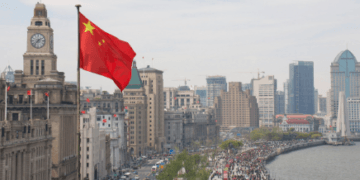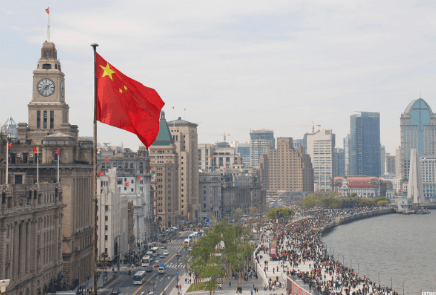Athira Sethu
Kochi, 19 October 2024
China’s economy, which rose at its slowest pace in a year and a half, has sent alarming questions about how the country’s financial health could be revived. Recently, the government took several measures to encourage spending and try to address the persistent problems with the country’s struggling property sector, already hemorrhaging massive debt.
The National Bureau of Statistics said the economy grew 4.6% in the third quarter of 2023. That is slightly down from 4.7% in the previous quarter. Compared to early 2023, when the country was recovering from strict COVID-19 policies, this is the slowest growth so far. Though the number was better than the 4.5% that analysts expected, it still signals challenges ahead.
The NBS referred to the economy as being in a “complicated and severe external environment” combined with new domestic challenges. Yet, there was an encouraging sign in the retail sales of September, where the sales grew above expectations, suggesting a hint of recovery in consumer spending.
The country’s major banks have slashed interest rates on yuan deposits for the second time this year in its bid to try and keep the economy going. The hope is that this will make lending easier while at the same time pushing the country’s economy back on track. However, with assurances given by the government that it would achieve 5% growth for the year, many think more is needed in direct financial ways to bring business confidence.
Recently, the government has announced some measures towards injecting cash into the economy with cuts in interest rates and an easing of restrictions on purchasing homes. However, investors await more details about how the country is going to transition into a consumption-driven economy rather than one purely reliant on heavy investments by the government.
Economist Benson Wu at Bank of America Global Research, says these announcements are a step in the right direction. However, he noted that the details for actual financial support are still unclear. According to him, clarity is needed so that these policies can be clearly gauged.
The most serious threat might come from continuing problems in the real estate market, which for several years had been among the main growth drivers. In September, new house prices rose in only two of 70 cities covered in the survey to indicate the difficulties facing the market. Officials recently promised to extend more credit to uncompleted housing projects and renovate a million homes to help stem the decline in the sector, but many are still waiting for significant financial commitments.
Economists, including Pinpoint Asset Management’s Zhang Zhiwei, warn that the trend is so burdensome that China is unlikely to meet its 5% growth target for 2024. He believes fiscal stimulus details may come out in November, as they are likely to be dependent on the outcome of U.S. elections.
In addition, slow domestic consumption is part of the problem. Consumer reluctance may bring about deflation as reflected in the consumer price index that came short of September’s expectations hinting at overall weak demand.





















